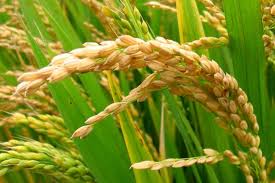Lagos, Nov. 16, 2023: Mr Sakin Agbayewa, the Deputy Chairman, All Farmers Association of Nigeria (AFAN), Lagos State Chapter, has urged Federal and State Governments to adopt the Thailand food model in the country.
Agbayewa said on Wednesday in Lagos that the model would enable government at all levels to create specific food zones in states and local government areas.
He said that government could establish rice free zone, maize free zone, cassava free zone and more to boost the nation’s food security using the model.
He also said that establishing food zones would address the present food security challenges, thereby revolutionising farming practice in the country.
Agbayewa said that Thailand had a food model that was specifically a factor for rice cultivation with every necessary infrastructure and resources provided in the zone.
According to him, today, Thailand is one of the highest producers of rice in the world with over 33 million metric tons annually, while Nigeria produces only 8.4 million metric tons annually.
He said that if government could replicate such Thailand policy in the country, the issue of food scarcity would be permanently addressed.
“We want the government to do more advocacy on rice production and the federal and state governments to emulate the model used in Thailand.
“Thailand have what is called the rice zone; the area is factor for rice cultivation and every infrastructure that will make rice grow is provided in the zone.
“All the farmers do is to acquire their land within the zone and tap from the infrastructure already provided by the government.
“Our governments should begin to look towards that end, just like we have Lekki Free zone, they should begin to look at establishing rice free zone, maize free zone, cassava free zone and more,” he said.
Agbayewa said that the facilities, such as irrigation, solar power and good road network, should be created in the zones to make farming interesting and attractive to the youths.
He also urged the South-West governors to key into the model by recongnising which local government is good for what and developing it to commercial level.
He said: “This strategy will bring down the cost of production because there is what we call comparative advantage in terms of technology.
“We want the government to begin to look towards that direction.
“The South-West governors should also be looking in that direction, if they want to boost their food security status.”
According to Agbayewa, rice is a burning issue in Nigeria right now, we produce over six million metric tons yearly.
“Before former President Muhammadu Buhari’s intervention, we were producing between 600 and 700 metric tons, yearly.
“When Buhari came with the intervention by shutting the borders, encouraging rice farmers and rice millers to produce more, we were able to do more to about 4.5 million tons in a year.
“So, if we don’t give Buhari any credit in other areas, we should be able to give him credit for his contributions in rice value chain.
“In spite of that, we still have about 2 million metric tons shortfall,” he said.
Agbayewa highlighted issues affecting rice production in the country to include climatic situation, insecurity, insincerity on the part of citizens and high cost of transportation.
“Sincerity is a big problem to us because they know that there is a blockage on smuggling, the local sellers decide to increase the price, which is not a good one.
He said that rice coming in from Kebbi, Jalingo, Adamawa, Taraba and Ebonyi would end up in Lagos because of the commercial market.
“If you now factor the cost of transportation into it and other costs, the market price of the commodity would be expensive,” Agbayewa said.
“The purchasing power for rice is in the South-West but they are not producing rice.
“That is the basic truth and we should be sincere with ourselves,” he said.
He further said that from Jalingo to Lagos, one would be looking at N2.5 million for one trailer of 30 tons.
He also said that from Osogbo to Lagos, one metric ton is N50,000.
“The cost of diesel and transportation, multiple levy, security levy, toll levy, local government levy, state levy and many more, all these fees calculated would add to the cost of the rice.
“It is the consumers that will bear the brunt of all these expenses just to move the rice from North to South-West or from South-East to South-West.
“Rice paddy is also a major problem.
“The rate people are mopping us rice paddy in the farms is unbelievable because everybody is working towards the Yuletide,” Agbayewa said.




